Endevco introduces new variable capacitance accelerometer featuring onboard, microprocessor-based temperature compensation
6th December 2007
Source:
Endevco
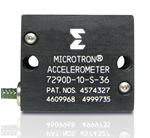
Endevco Corporation, the leader in sensing solutions for demanding vibration, shock and pressure applications, has announced introduction of the Endevco model 7290D variable capacitance accelerometer with onboard, microprocessor-based temperature compensation. It is designed to provide very high thermal stability and global accuracy required for measurement of relatively low-level accelerations in laboratory test and measurement, automotive and aerospace applications including both military and commercial flight testing.
Patented by Endevco, typical applications for the new model 7290D require measurement of whole body motion immediately after the accelerometer is subjected to a shock motion and in the presence of severe vibration inputs. Gas damping and internal over-range stops enable its anisotropically etched, silicon sensing element to withstand high shock and acceleration loads. The use of gas damping in the sensing element also results in very small thermally induced changes in frequency response.
With its onboard, microprocessor-based temperature compensation, the model 7290D delivers 2.5% total dynamic accuracy over the entire military spec temperature range of -55ºC to +125 ºC. Total dynamic accuracy is defined as the root of the sum of the squares of thermal sensitivity shift, non-linearity and hysteresis, and transverse sensitivity.
Custom signal conditioning enables the model 7290D to operate with a nominal excitation of 8.0 Vdc to 30.0 Vdc and provides a high-level, low-impedance output. The ±2.25 V differential output (single-ended output optional) is DC coupled at a DC bias of approximately 2.5 V.
In order to maintain stringent thermal characteristics and high accuracy, a custom ASIC provides factory programmable temperature compensation. All compensation and adjustments are incorporated within the accelerometer and no post-processing is required. The compensation is accomplished via a five-point, piecewise, linear fit algorithm for both thermal sensitivity shift (TSS) and thermal zero shift (TZS). A Transducer Electronic Data Sheet (TEDS) conforming to IEEE 1451.4 has been included to store serial number and calibration information.
With its onboard, microprocessor-based temperature compensation, the model 7290D delivers 2.5% total dynamic accuracy over the entire military spec temperature range of -55ºC to +125 ºC. Total dynamic accuracy is defined as the root of the sum of the squares of thermal sensitivity shift, non-linearity and hysteresis, and transverse sensitivity.
Custom signal conditioning enables the model 7290D to operate with a nominal excitation of 8.0 Vdc to 30.0 Vdc and provides a high-level, low-impedance output. The ±2.25 V differential output (single-ended output optional) is DC coupled at a DC bias of approximately 2.5 V.
In order to maintain stringent thermal characteristics and high accuracy, a custom ASIC provides factory programmable temperature compensation. All compensation and adjustments are incorporated within the accelerometer and no post-processing is required. The compensation is accomplished via a five-point, piecewise, linear fit algorithm for both thermal sensitivity shift (TSS) and thermal zero shift (TZS). A Transducer Electronic Data Sheet (TEDS) conforming to IEEE 1451.4 has been included to store serial number and calibration information.
Similar articles
More from Endevco
- Endevco Celebrates 6,000th Successful Field Installation of Model 2221F Thru Bolt Mounted High Temperature Piezoelectric Accelerometer 29th September 2009
- Endevco Named One of Top 20 Orange County Aerospace & Defense Contractors 4th September 2009
- Endevco Launches New “-R” Discounted Replacement Sensors Program 4th September 2009
- Damped Low Mass DC Response Accelerometer for High Reliability Impact Testing Applications 21st August 2009

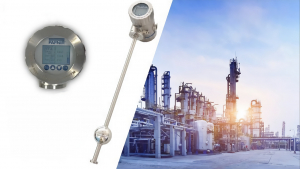
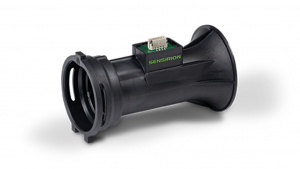
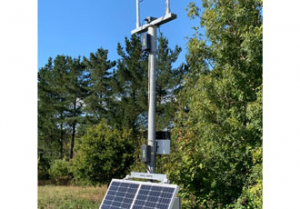
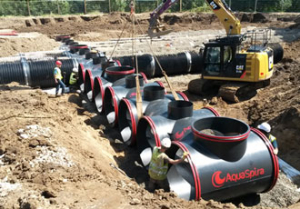







Write a comment
No comments